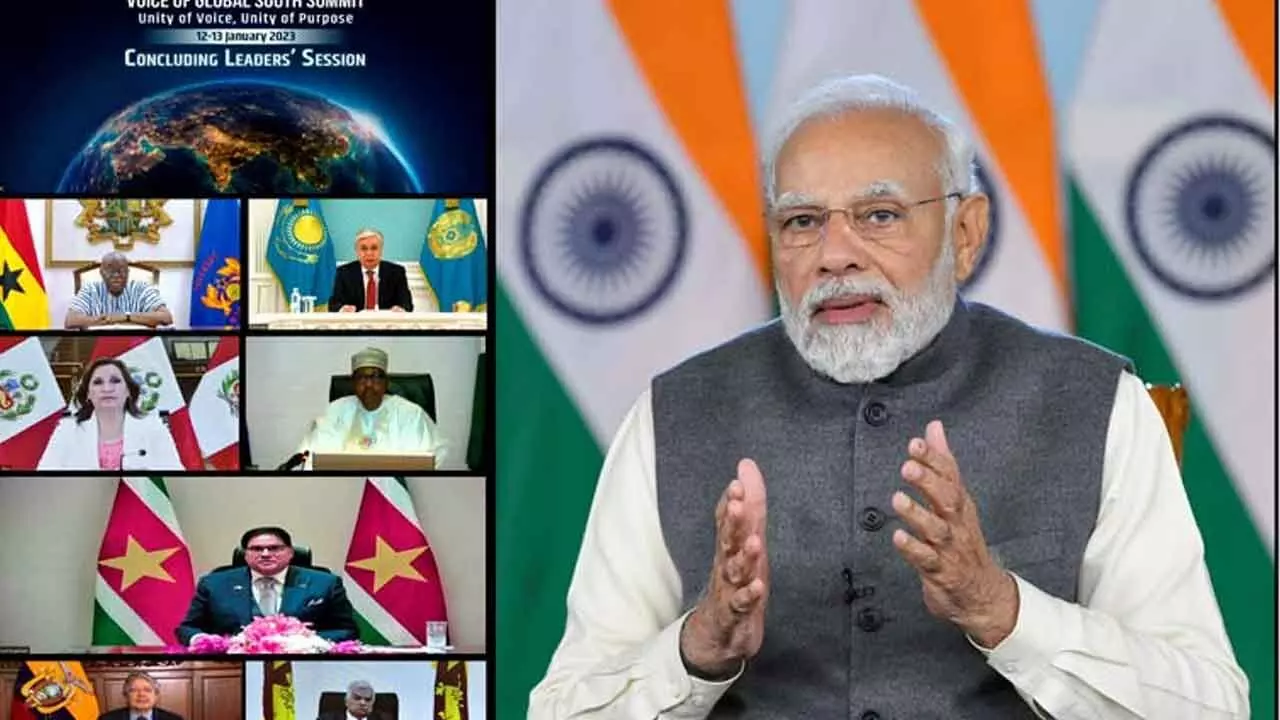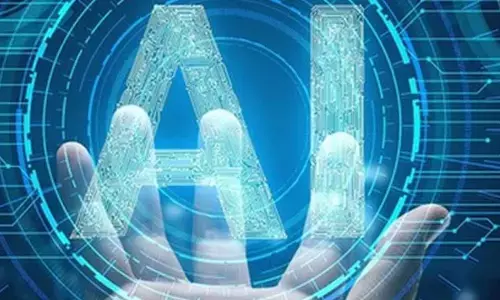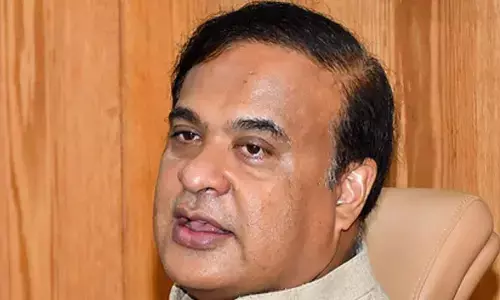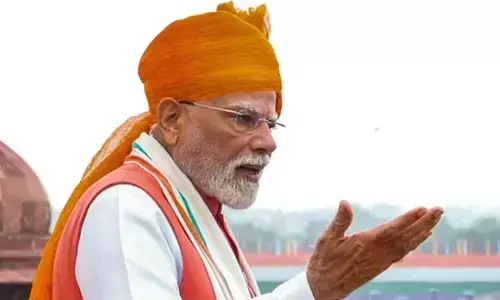2023 sees Global South find its voice in India

Climate change events, fiercer than ever, wars and conflicts turned 2023 a year of upheavals largely for the whole world, causing recessionary trends that threaten to persist and worsen in 2024. Amidst vociferous protests by small nations, poor ones and islands that protested against indifference to the growing threats of climate change, if one new term that was conspicuously bandied about in conversations at global platforms such as G-20, it was ‘Global South.’ Of course, it is not strictly a new word, coined as it was about three decades ago after the Soviet Union collapse in 1991. India, through its forceful voice in PM Modi, earned these nations a rightful place, impelling the rich and developed nations to pay heed to their issues and concerns. It placed the group on a high pedestal during the Delhi G-20 summit.
Some believe the term ‘Global South’ aptly replaces ‘Third World Countries’ for reasons of political correctness. It became a sort of code, loosely connoting the countries in the northern hemisphere, the emerging economies, or the developing countries etc, including India. Hitherto confined to sidelines, they made their views heard in 2023 on crucial issues such as climate change, conflicts, sustainable credit, financing by big banks etc. Rather than for geographical proximity, the term sort of became a unifying and rallying slogan for over dozens of countries around the world. It got an effective forum at G-20 under the presidency of India. While the developed countries, or Global North, have G-7 to address their concerns, BRICS and G20 serve to echo the voices in Global South.
September 9, 2024 marked a clear ascent of the Global South, as India’s efforts paid off, roping in African Union (a group of 55 countries, some of them so poor) to join as a member of G20. A respectful divergence in views and heterogeneity in composition, including democracies and military regimes, marks the Global South now. Though big countries like India, Brazil or Indonesia were neutral on Ukraine war, many nations in the club, if we may call it so, raised voices against Russia. This reflects the democratic and representative character of the group, which is gradually expanding its influence in the global diplomacy as does India. India is not only lending its voice, but also helping the poor nations, during calamities such as drought, quakes, Covid-19, Ukraine conflict, overcome medicinal and food supply chain disruptions.
As China moved away from Group of 77 or G77 of developing nations, gravitating toward rich nations, India moved closer to them, rendering material and moral support to many. China is offering a huge lending chest of over $2 trillion to nations including the Global South, debt-trapping some of them. In contrast, India is pressing for ways to extend viable credit, avoiding imposing debt burden. It represents the cause of Global South in pitching for sovereign debt restructuring also, and timely debt relief to low-income countries. India is careful, following a middle-path approach and respecting differences in views – while it refrains from questioning Israel, many are decrying Tel Aviv for the war on Gaza and heart-melting tragedies of Palestinians. Further, India’s efforts to pave way for reformation of multilateral development banks (MDBs) to include climate change financing as a core mission has raised its stature higher than China’s. India’s non-confrontational approach in dealing with G7 on the issues of the developing world is making more nations lean on it, even as a far richer China aspires to be the voice of Global South, at next year’s G20 meet in Rio de Janeiro.














